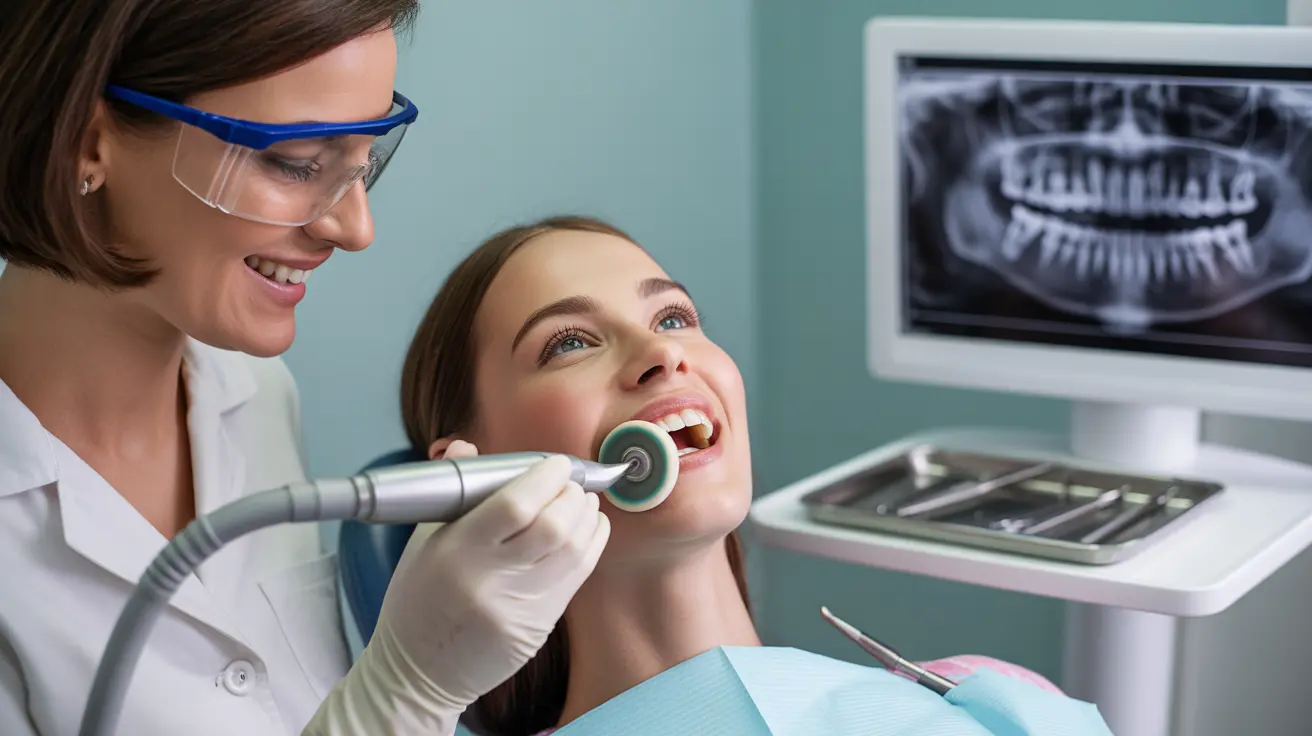Professional teeth polishing is a crucial component of dental hygiene that goes beyond regular brushing and flossing. This dental procedure helps maintain optimal oral health by removing surface stains, plaque, and tartar buildup while leaving teeth smooth and gleaming. Understanding the benefits, process, and considerations of teeth polishing can help you make informed decisions about your dental care routine.
Whether you're preparing for a special occasion or simply maintaining good oral hygiene, teeth polishing can play a vital role in your dental health strategy. Let's explore everything you need to know about this common dental procedure, from its benefits to potential risks and alternatives.
Understanding Professional Teeth Polishing
Professional teeth polishing is a dental procedure performed by licensed dental professionals using specialized tools and polishing compounds. The process involves removing surface stains and deposits while smoothing the tooth enamel to create a clean, polished appearance.
During the procedure, dental professionals typically use a small rubber cup attached to a handpiece, applying a specially formulated polishing paste to clean and smooth the teeth. This technique effectively removes surface stains and creates a barrier that temporarily helps prevent plaque accumulation.
The Benefits of Professional Teeth Polishing
Professional teeth polishing offers several important advantages for oral health:
- Removes surface stains effectively
- Creates smoother tooth surfaces that resist plaque buildup
- Reduces bacterial adhesion to teeth
- Improves overall appearance of teeth
- Helps maintain gum health
- Provides a thorough clean feeling
Regular polishing sessions, combined with proper oral hygiene habits, can help maintain optimal dental health and prevent various oral health issues.
Professional vs. At-Home Teeth Polishing
While at-home polishing kits are available, they differ significantly from professional treatments in several ways:
Professional Polishing
- Performed by trained dental professionals
- Uses professional-grade equipment and materials
- Includes thorough examination of oral health
- Provides consistent and safe results
- Customized to individual needs
At-Home Polishing
- Limited effectiveness compared to professional treatment
- Potential risks if not used correctly
- Variable quality of results
- May not address underlying dental issues
- Limited ability to remove stubborn stains
When to Consider Teeth Polishing
The frequency of teeth polishing depends on individual factors such as:
- Oral hygiene habits
- Diet and lifestyle choices
- Existing dental conditions
- Staining patterns
- Professional recommendations
Most dental professionals recommend professional polishing as part of regular dental cleanings, typically every six months for patients with good oral health.
Frequently Asked Questions
What are the benefits of professional teeth polishing for my oral health, and does it help prevent gum disease?
Professional teeth polishing helps prevent gum disease by removing plaque and tartar that can lead to gingivitis. The procedure creates smoother tooth surfaces that make it harder for bacteria to adhere, reducing the risk of gum inflammation and disease. Regular polishing, combined with proper oral hygiene, can significantly contribute to maintaining healthy gums.
How often should I have my teeth polished by a dentist, and are there any risks or side effects I should know about?
Most dentists recommend professional polishing every six months during routine cleanings. While generally safe, potential side effects may include temporary tooth sensitivity and minimal enamel wear if performed too frequently. People with certain dental conditions should discuss the appropriate frequency with their dentist.
Can teeth polishing remove stains from coffee, wine, or smoking, and are there any stains it can't remove?
Professional teeth polishing effectively removes surface stains from coffee, wine, and smoking. However, it cannot remove deep intrinsic stains that occur within the tooth structure. These deeper stains may require alternative treatments such as professional whitening or dental veneers.
Is it safe to polish my teeth at home, and how does professional polishing differ from at-home kits?
While at-home polishing kits are available, they're generally less effective and potentially risky if misused. Professional polishing uses specialized equipment and techniques that provide superior results while protecting your enamel. Dental professionals can also identify and address any underlying oral health issues during the procedure.
Who should avoid teeth polishing, and what are the alternatives for people with sensitive teeth or thin enamel?
People with severely worn enamel, extreme tooth sensitivity, or certain dental conditions should approach teeth polishing with caution. Alternatives include gentle cleaning methods, specialized toothpaste for sensitive teeth, and modified polishing techniques. Consult with a dental professional to determine the most appropriate approach for your situation.




